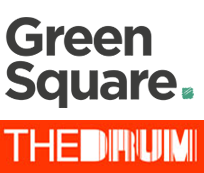16th April 2018
Despite his eye-watering salary, an ugly past business year and personal misconduct allegations still left unresolved, the industry’s response to Sir Martin Sorrell’s WPP resignation smacks more of effusive obituary than critical analysis. But alongside the tributes is a feeling of invigoration: a hopeful sense that things will never be the same again without the godfather of modern advertising.
“The end of the era” is the ubiquitous phrase flying around the ad industry airways today (15 April), following WPP’s carefully buried Saturday night announcement that its founder and chief executive would be stepping down after 33 years. Such a grandiose expression is not unjustified in this case, however; Sorrell arguably built from nothing what is the modern ad industry today (or, what was the modern ad agency until the duopoly and consultancies showed up five years or so ago).
Tributes flooded in thick and fast from those who had worked with him, interviewed him and admired or criticised him from afar, despite the fact that no-one is quite sure what misdemeanours WPP’s internal investigation into an ‘allegation of personal misconduct’ threw up. Operationally, however, his departure is “unlikely to have an immediate impact on the group”, according to Tony Walford, partner at M&A boutique Green Square. “Although he had a lot of personal involvement in how it was run, it was simply too big for one person to control.
“However, he is a huge character, someone the industry and the global business community turn to for opinion, as well as being the public face of WPP. Going forward, WPP needs to ensure it retains its personality.”
Still, there are those who are happy to see him go. They are, by and large, the creatives in operation in the days before Wire & Plastic Products turned into a marketing company in 1985; former creative director Iain Maclean wrote: “I look forward to seeing the likes of JWT and Ogilvy freed from the man’s spidery web”.
But perhaps it’s because Sorrell was famed for spouting phrases such as “I’ll carry on until they carry me out of the glue factory” and “I’ll die at my desk” that most tributes to his time at WPP are in the ilk of an epitaph.
Justin Cooke, the founder and former chief executive of WPP-owned agencies Possible and Fortune Cooke, wrote: “There are few people on the planet more driven and focused than Sir Martin – I have seen unicorns a third of his age left for dust … I never had an email go unanswered. Often a succinct reply would appear in minutes.
“From dawn until dusk his commitment was Olympic. He was passionate about talent and despite a relentless work ethic understood the importance of family … For me he will always be the Founder’s Founder. Goodbye Sir Martin.”
The PRCA’s director general, Francis Ingham, said Sorrell, “shaped our industry into the global success story that it is today”, while Paul Frampton, the former chief executive of Havas UK, believes the ad industry will be left “with a sizeable hole” in the CEO’s wake.
“More than anyone,” Frampton said, “Sorrell was the poster child for advertising equalling big business and the ad industry would do well not to lose this important association moving forwards.” He added that “his one failing is perhaps that he spent almost no time on his succession plan and considered himself invincible”.
The succession plan, as it stands, appears hastily put together. Roberto Quarta, chairman of WPP, becomes executive chairman until the appointment of Sorrell’s full-time successor is made, while Mark Read, chief executive officer of Wunderman and WPP Digital, and Andrew Scott, WPP’s corporate development director and chief operating officer, Europe, have been paired together as joint chief operating officers.
Even the board of WPP, it appears, are unsure of what comes next in a post-Sorrell world.
“[It’s a] sad day for advertising …” said Michael Moszynski, founder and chief executive of London Advertising. “I also suspect it marks the high tide mark for the big holding companies.”
Drew Meyers, founder of Made Studios and former president of Gyro, agreed that Sorrell’s departure marks a new epoch for the industry. He said: “Aside from whatever scandal may or may not have occurred, this is another massive sign that the ad/marketing agency business as we’ve known it is OVER …
“The holding companies, and their focus on ‘shareholder value’ versus client value … are embarrassingly out of step with the needs of clients today and the realities of the marketplace. Looking forward to seeing how this trend continues to evolve and how agencies can reinvent themselves to deliver true value and impact.”
Yet Brian Wieser, senior analyst at Pivotal, argues that the industry may be overestimating the power of Sorrell, and that the news doesn’t equate to “the end of the network model”.
“If that was occurring it was going to happen regardless of Sorrell, and I’d argue that Levy is still actively involved in Publicis, so to the extent they are making changes, it’s independent of who is in the CEO role,” he said. Fellow analyst Walford agreed, stating: “Regardless of whether Levy and Sorrell had stayed in situ, the traditional model was always going to be challenged at this point.”
Read more
